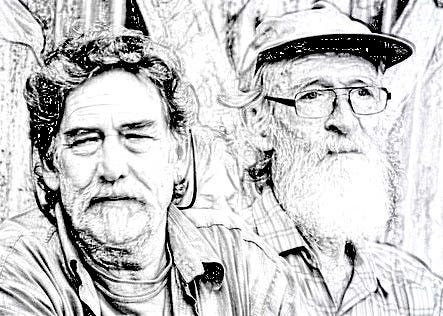What form did Jesus' resistance take against the forces of evil?
Do not return evil for evil, or insult for insult
In the gospel today (Saturday, the Second week of Advent - Matthew 17:9-13), Jesus describes how evil has, and will, react to those aligned with him. He is the Christ, our Lord, and is the opposite of everything the world seems to prefer. He points to St. John the Baptist, and himself, as examples of how goodness and love are dealt with by those who take sides with evil — ". . . and they did not recognize him but did to him whatever they pleased. So also will the Son of Man suffer at their hands" (Matthew 17:12).
Some say Jesus did not resist the forces mounted against him, but that's not true. He did not stop their ultimate success, certainly, because he was tortured and crucified. He didn't stop the eventual forces against John the Baptist either. We will encounter similar moments because Jesus will allow evil to have its way with us. Still, we must resist. Not in the way we initially understand resistance but in the manner of Jesus.
Image by YasDO
Yes, Jesus overturned the changing tables at the Temple. However, that was not evil against evil. That was cleaning house. We cannot exact vengeance, for that's the prerogative of God. What we do to maintain right order will only be justified by a "good" character founded upon love.
Romans 12:19-21 sets the ground rules. Beloved, do not look for revenge but leave room for the wrath; for it is written, “Vengeance is mine, I will repay, says the Lord.” Rather, “if your enemy is hungry, feed him; if he is thirsty, give him something to drink; for by so doing you will heap burning coals upon his head.” Do not be conquered by evil but conquer evil with good.
The form of resistance that Jesus took is described repeatedly by Paul in his letters and presented as the type of pushback allowed to us.
Paul, Colossians 3:12-14 said, "Put on then, as God's chosen ones, holy and beloved, heartfelt compassion, kindness, humility, gentleness, and patience, bearing with one another and forgiving one another, if one has a grievance against another; as the Lord has forgiven you, so must you also do. And over all these put on love, that is, the bond of perfection."
"Stop lying to one another, since you have taken off the old self with its practices and have put on the new self, which is being renewed, for knowledge, in the image of its creator." (Colossians 3:9-10)
These "new self" characteristics resist what must be put away — anger, fury, malice, slander, and obscene language out of our mouths.
John the Baptist laid out the truth for Herod and got his head chopped off. Jesus laid out the truth for the Jewish leadership and the Roman overlords. He was crucified. Such horrors may be allowed by God to happen in our lives. Eventually, we all will die, which, regardless of notions of a "happy death," is still a terrible fate. But anger, hate, envy, and lying aren't justified when evil is chasing us.
The Psalm for today shows early Israel pleading with God to make the Chosen People turn to him. "Let us see your face, and we shall be saved." Jesus is the face of God. Hear the author of this Psalm cry out. "May your help be with the man of your right hand, with the son of man whom you yourself made strong. Then we will no more withdraw from you; give us new life, and we will call upon your name." (Psalm 80:18-19)
The prayer in the Psalm is a premonition of the Messiah, Jesus, the Son of Man, says Paul in Colossians. Because of Jesus, we have a new life, a new self. We must not withdraw from God when we know his face, receive his indwelled Spirit, and eat his body and blood in the Eucharist.
This new self still faces all occasions of evil. What we are to do about resisting evil is mentioned as early as Galatians 5:22-23, written only a decade or two after Jesus' resurrection. "In contrast [to a litany of evil behavior], the fruit of the Spirit is love, joy, peace, patience, kindness, generosity, faithfulness, gentleness, self-control. Against such, there is no law."
Healthy societies do not write laws that stop the fruits of the Holy Spirit for good reason. These things are good, and their presence unequivocally assists in protecting people from evil. Rules get written when people don't exercise the fruits of the Holy Spirit.
"So then, while we have the opportunity, let us do good to all, but especially to those who belong to the family of the faith" Galatians 6:10. We may hear negative messaging about Christians and especially Catholics. Yet, the way we treat each other is a testimony to non-believers and believers alike.
Peter expresses the same kind of resistance to evil in 1 Peter 3:8-9. "Finally, all of you, be of one mind, sympathetic, loving toward one another, compassionate, humble. Do not return evil for evil, or insult for insult; but, on the contrary, a blessing, because to this you were called, that you might inherit a blessing."
While our first reaction, a physical aversion to evil, sparks us to speak out in anger, we will likely make matters worse.
Jesus awaits our prayers for peace. While we stand in the way of evil toward innocents, and lay our lives on the line to protect others, our demeanor, intentions, and character must resist evil with the good fruits, who in their entirety, are founded in love.







